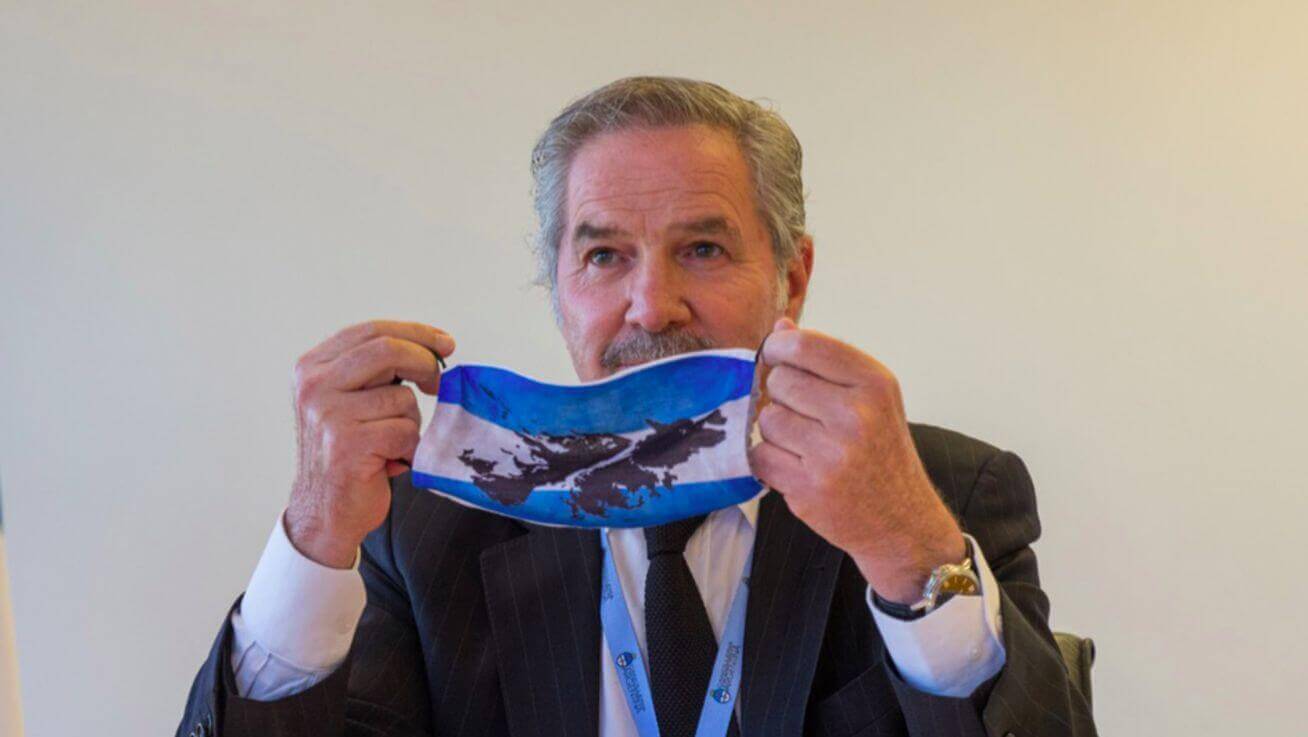Amid reports that Argentina is planning to take a more aggressive stance in its policy on the Falkland Islands, the elected government of the islands expressed its disappointment at the Argentinian government’s plans to “escalate their claim over the sovereignty” of the Falklands.
Last week, it emerged that Argentina had laid out a three-point roadmap that consisted of three goals: re-registering its claim to the islands in the Organization of the American States (OAS), re-imposing legal threats against oil companies operating in the region, and pressing the European Union to force the United Kingdom to remove the Falklands from its list of overseas territories and list it as a disputed territory.
This roadmap was unanimously approved in Congress, where politicians approved plans to extend the outer borders of Argentina’s continental shelf. One of the bills, which aims to impose fines on vessels caught illegally fishing in South Atlantic waters has not yet been passed. In fact, this bill extends to introducing criminal proceedings against companies operating in the area, including seizing assets and arresting company executives.
Argentina also aims to pass these bills through the United Nations Decolonization Committee, also called C24, where it has resolved to calling for a peaceful and diplomatic solution to the dispute between itself and the United Kingdom (UK). The C24 resolution was supported by all 29 members. Argentina will also increase its engagements with the OAS in a bid to gain American and Canadian approval. In early July, Argentina also rallied the support of the heads of state of Mercosur, a continental trade bloc.
These developments have unsettled the elected government of the Falkland Islands, which released a statement saying: “As countries around the world continue to battle with the devastating and multiple impacts of COVID-19, it is absolutely right that every global government firmly turns their focus towards protecting their people and bringing the virus under control. It is therefore disappointing to read of the Government of Argentina’s plans to use this particular point in time to announce their intent to escalate their claim over the sovereignty of the Falkland Islands, with a new ‘road map’ focused on three objectives, all of which aim to coerce, threaten and apply legal pressure to those who continue to work together with our nation and who respect our right to self-determination.”
The Falkland Islands form an archipelago in the South Atlantic Ocean on the Patagonian Shelf and is technically a British overseas territory. The islands have internal self-governance, while the UK looks after their defense and foreign relations. While the islands have been settled by the French, the British, the Spanish, and the Argentines, Britain formally brought the islands under its control in 1833. However, Argentina contests these claims, saying that the islands came under Argentine control after it gained independence from Spain in 1816. In fact, the Argentinian military invaded the islands in 1982; although British administration was back in place just two months later after a brief war.
In a 2013 referendum on the political status of the Falkland Islands, residents were asked: “Do you wish the Falkland Islands to retain their current political status as an Overseas Territory of the United Kingdom?” The vast majority, or 99.80%, of Falklanders are in favor of remaining as a UK overseas territory. In fact, just 3 people voted no, while 1,513 people voted yes.
Falkland Islands Elected Government Rejects Argentina’s Escalating Sovereignty Claims
The Argentinian government recently released a three-point roadmap on the islands.
August 11, 2020

IMAGE SOURCE: ARGENTINA CHANCELLERY / GETTY IMAGESForeign Minister Felipe Solá holding a face mask with the Falkland Islands superimposed on the Argentinian flag.
